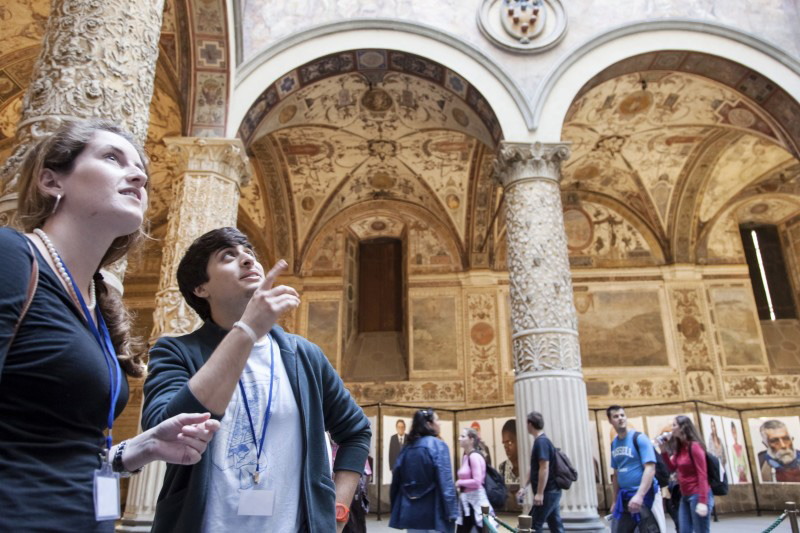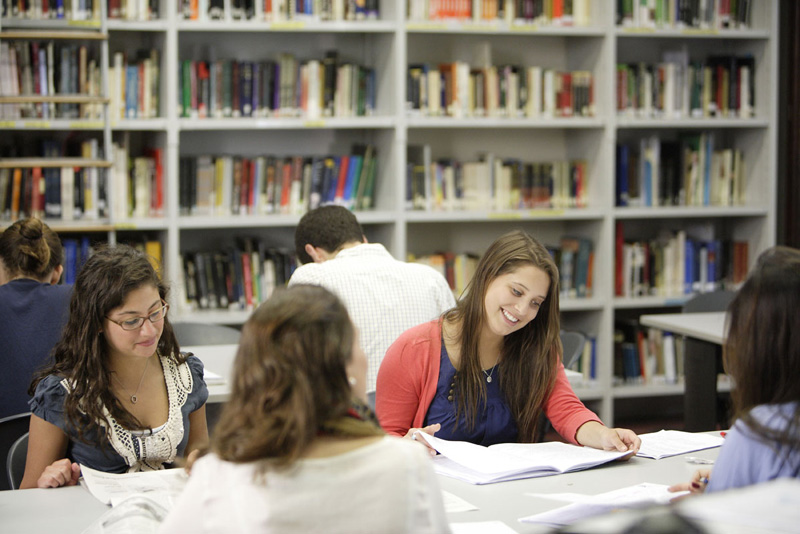It’s back-to-school time in Florence, and like every semester, between 3,000 and 5,000 American college students will flood the city, coming to study abroad here. Shedding light on this phenomenon are representatives of the two largest organizations involved in this sector: Fabrizio Ricciardelli, director of the Kent State University Florence Center and co-secretary treasurer of AACUPI; and Matteo Duni, president of ASAUI and professor of history at Syracuse University and NYU in Florence.

Lisa Kaborycha: Fabrizio, can you tell us a little about AACUPI, its mission, history and accomplishments?
Fabrizio Ricciardelli: AACUPI is the acronym for Association of American College and University Programs in Italy. Founded in Rome in 1978 as a non-profit legal entity, over the past 40 years, AACUPI has worked with the Italian government to simplify procedures and bureaucratic norms as they apply to colleges and universities from North America in Italy. This has led to the Italian Parliament’s passage of two specific laws that clarify the legal and fiscal positions of AACUPI programs, and guarantee reciprocal understanding regarding immigration procedures, including visa applications and stay permits, for both students and “visiting” North American faculty.
LK: Matteo, what is ASAUI and how do its goals compare with those of Fabrizio’s group?
Matteo Duni: ASAUI is the Association of Scholars at American Universities in Italy, and was founded in 2009 by a group of teachers from different programs in Florence. Its main goal is to promote the recognition of the role and professionalism of faculty at these schools. We showcase member achievements and network within our community. We believe teachers are the crucial link in the international education experience since they are the bridge connecting students with their host country, and we want to make cultural and political institutions, in Italy as well as in the US, more conscious of this.
LK: How extensive is the study-abroad sector in Italy?
FR: The annual student population in Italy reaches 35,000 and around 15,000 of them are in Florence. At the moment there are over 160 North American study abroad AACUPI Programs in Italy and more than 50 are based in Florence. In 2012, these programs generated around 550 million euro, a figure which by now has increased; the number of professionals employed in study abroad is over 11,000.

LK: Is there a general profile of the kind of teacher who works in study abroad?
MD: As Fabrizio says, we know a lot about the students and their programs. However, we have very little hard data about teachers here. As a group, we are very qualified professionals, active scholars with advanced degrees, publications, and awards. We are extremely diverse with an Italian majority but a substantial group of faculty from the Anglo-American academic world, Europe and beyond, many of whom, adding to the international flavor, were trained in the US or UK.
LK: As a teacher, what are the challenges you face in your work and what are some of the satisfactions?
MD: We all want to get the students engaged with their cultural experience here in an immersive way: some of us like to teach on site, where students learn hands-on fresco painting techniques, or learn about monasticism by actually meeting monks; it might mean taking students to the Florence State Archives to handle 600-year-old documents or taking them to Corleone to spend a day meeting with farmers working fields confiscated from the Mafia. In general, the biggest challenge is to link real-life immersion with classwork, beating out the competition of omnipresent social media and getaway weekends with low-cost airlines.
LK: What goals do your organizations have for the future?
FR: At the moment, AACUPI is asking the government to extend the declaration of presence from 90 days to 150 days. If we reach this goal, for all students whose programs run for more that 90 days (at Kent State University, for instance, the semester counts 123 days) AACUPI students will avoid starting the stay permit procedure at the Questura and will easily be able to remain in Italy for more than 90 days with a simple Declaration of Presence. We believe this would be a good investment for the city and the country.
MD: As I mentioned, we don’t have reliable statistics on who we teachers are. That’s why this fall, ASAUI will be conducting the first-ever survey on teachers in study abroad in Italy. Our goal is to use the data to start a serious conversation with all the parties involved, both here and in the US, about the need for a specific contractual recognition of our work, which is long overdue. The learning environment and students’ experience would only be enhanced by such positive changes. Faculty and schools need to cooperate in the ever-more challenging endeavor of leading students to a higher understanding of the complexities and interconnectedness of the globalized world. This is the true mission of international education.







